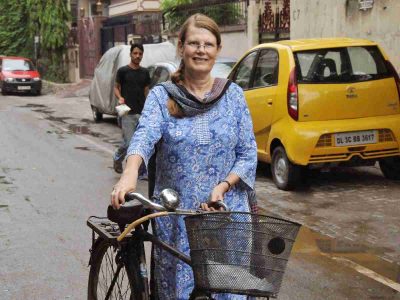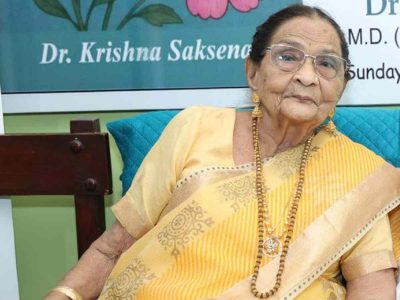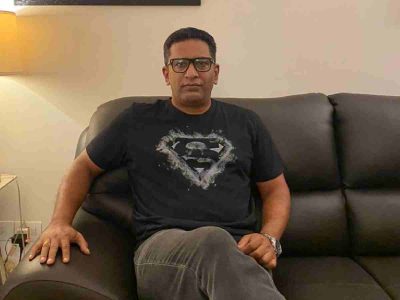At the age of four, Deveshi Sahgal was sent by her mother to learn Indian classical music from guru Gurinder Kaur. Being the youngest in the company of 20- and 30-year-olds was an interesting experience for her. She would play with her toys, watch people do riyaz and then was told to sing along, which she did much to the amazement of the students.
She attributes it to learning more “subconsciously” than consciously. This journey continued, till she was 14. Little did she know what she absorbed as a child, would one day help her get lucrative contracts from Zoya Akhtar’s women-centric record label Tiger Baby, where she will be recording and releasing an album this year, as well as an opportunity to sing Das mein ki pyaar vichon khateya, at Coke Studio, a benchmark of excellence in the music world.
The quintessential Delhi girl, who achieved this feat without any proverbial godfather, contacts in the Bollywood film industry, or active PR machinery, attributes the opportunities she got to pure love for poetry, which she says got her this far.
Also read: Delhi’s spaces of experience
She is an artiste by heart—a sculptor who studied at the Delhi College of Art, then London’s Chelsea College of Art. She alternates her time between painting, sculpting, and recording original songs.
“Since I was young, I loved singing confidently in front of an audience, my grandfather called me an ‘inborn performer’,” she laughs.
But life had its twists and turns, moments when she turned to rock music to understand what makes it so “cool”, performing at music festivals and college gigs all over the country.
“My dad is a creative person and our home used to reverberate with Sufi baithak, ghazals, qawwaali for a discerning few, who were admirers of Urdu poetry. And that is where I get my love for Begum Akhtar. Till today, she is my inspiration,” she exclaims.
Even though her father was the architect of the polo revolution in India, launching a team and owning 40 horses, at a stud farm, he encouraged his daughter to continue her passion for singing, without ever questioning this career choice, which is what helped Deveshi pursue it with passion.
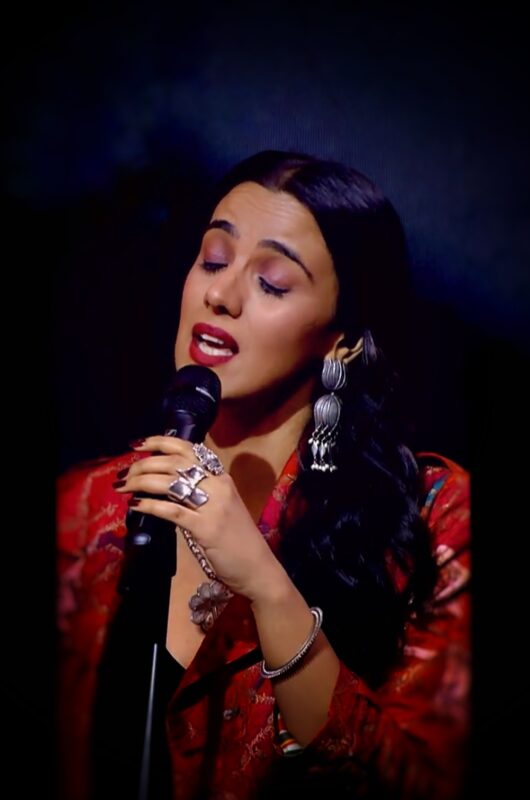
“I used to follow my dad when he went riding and tent pegging, I remember being his water girl, getting his boots, being around horses as a child, handing over his mallet, besides riding myself,” she reminisces.
Breaking into the music scene was a challenge. Many times, they would get the venue for free, she would sing just to play in front of an audience that appreciates music.
“Social media has changed the game for good, now there is a defined democracy. You are reaching the public directly without any intermediary. Anurag Kashyap discovered me through my Instagram posts,” she says. He was making the film Manmarziyan, with Abhishek Bachchan and they wanted an original voice. The star’s son had seen her on social media, when he told the filmmaker to approach her.
“Music director Amit Trivedi called me, before trying to DM me through Instagram, which I totally missed seeing, but what is meant for you will come, the song Dariya was destined for me. It was recorded in Mumbai over a period of two days, almost six hours in the studio, and I was told to take the scale higher which I never knew I would succeed in accomplishing,” she laughs.
She attributes meeting Bachchan junior to a stroke of luck, almost providence. She was touring with the team for the promotion of the film and singing live.
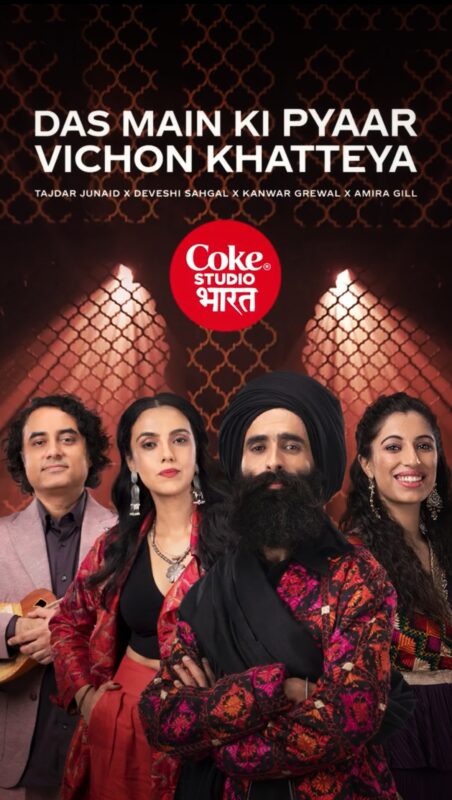
The beauty of her oeuvre is her influences — from performing Sufiana kalaams to singing with pop, rock and jazz bands to releasing her own independent electro-pop music. She also plays the piano and acoustic guitar to accompany these compositions.
She recently sung for Coke Studio Bharat on the track named, Das mein ki pyaar vichon khateya, a popular Punjabi folk song, which she also bagged by sheer serendipity when she happened to meet composer Ankur Tewari and they began impromptu jamming. It led to meeting Zoya Akhtar and Reema Kagti, performing at the Spoken music festival, and recording for Coke Studio where she sang reggae style in collaboration with five other musicians including her favourite Kanwar Grewal.
Deveshi has also performed at the country’s leading Sufi festivals such as Jahan-e-Khusrau organised by Muzaffar Ali, since 2014 whom she believes is a mentor and has always encouraged her to write lyrics.
She also performed at Jashn-e-Rekhta, the world’s largest Urdu language festival and the World Sacred Sufi Festival at the Mehrangarh Fort, Jodhpur.
“Sufi songs require mood and environment, even the light and space are crucial when you sing, as everything affects your mind. That’s why I am careful where I perform, as it is a sensory journey, even though I have sung at many fashion shows,” she confides.
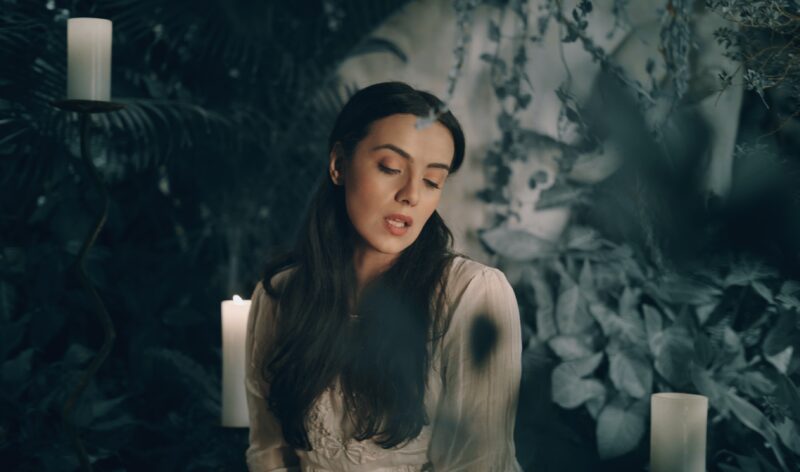
People tell her “It’s easy for you to do what you love”, but she admits romance and commerce make strange bedfellows. Music is about emotions.
“Sometimes you are happy and you have to sing a sad song, it can be the other way round too. It takes a lot out of you, as if you wear a new veil every day,” she admits.
Interestingly, “words” are magic, thus songs without meaning seem futile to her, whether it is English, Urdu, Hindi, or Punjabi. She is also releasing her book of poetry with her own sketches soon.
“I am learning Urdu, it is a struggle, as I want to write songs for my album, as well as compose. Lyrics are the ultimate powerhouse, only they can help you cross the Rubicon,” she concludes.


